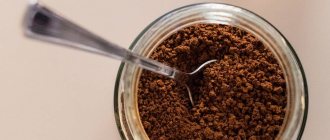Coffee invigorates and energizes, and this is especially important where people do not receive enough sunlight and heat. It is not surprising that in cool and rainy Finland, coffee bean consumption reaches 11.5 kg per capita per year, while in hot Brazil it is only 5 kg.
Information about the benefits and harms of the drink is quite contradictory, and even the opinions of experts differ radically. Anyone who sets out to find out how much coffee they can drink per day will find completely different data.
For example, some Japanese scientists claim that 5-6 cups of coffee a day (that is, approximately 500 mg of caffeine) reliably protects the liver from various diseases and prevents the development of diabetes and prostate cancer. But other Japanese scientists have found that 350 mg of caffeine per day is a direct path to rheumatoid arthritis.
In different sources, the norms for drinking the drink vary from 1 to 7 cups, and each author defends his rightness. To establish the truth, let's first figure out what chemical compounds are contained in coffee and how they affect the human body.
The effect of coffee on the body
When it comes to coffee, the first thing everyone thinks of is caffeine. There are no discrepancies when using this substance in tablets. In the instructions for the drugs, manufacturers indicate: the dosage rate is no more than 500 mg per day, no more than 300 mg at a time.
But when it comes to coffee, recommendations vary: from the point of view of some researchers, the maximum permissible dose of caffeine is 400 mg per day (no more than 200 mg at a time). But there are also expert estimates that exceeding the daily dose of 300 mg is fraught with serious diseases.
Despite the popularity of coffee and the large sums that its producers invest in scientific research, the effect of the drink on the human body has not been studied enough.
The fact is that raw coffee beans, in addition to caffeine, contain a number of compounds:
- tannins (tannins);
- organic acids: chlorogenic (4–10.9%), tartaric (0.4%), malic (0.3%), citric (0.3%), caffeic (0.2%), oxalic (0.05 %);
- fats (9.4–18%);
- 20 amino acids;
- sucrose (4.2–11.8%).
Each of these substances has a specific effect on the body. At high temperatures they decompose, forming new compounds. The chemical composition of a coffee drink largely depends on the method of its preparation.
Principles of proper coffee drinking
Having determined your individual limit - how many times you can enjoy your favorite drink, follow simple rules. The result will be true pleasure that brings benefits.
- Don't drink coffee on an empty stomach. The optimal time is immediately after eating or an hour and a half later. Coffee drinking is complemented by a delicious dessert in between meals.
- Give preference to bean (ground) coffee. Natural ground grains have significant advantages - bright taste and aroma, contain a lot of useful substances (antioxidants, vitamins, potassium, magnesium, niacin).
- Do not go beyond 6 cups, otherwise your sensitivity to caffeine will decrease. Try to adhere to the established limit - how much coffee you can drink per day for good health.
- Drink coffee 4-5 hours before bed. It is known that the acceleration of metabolic processes and short-term excitement can lead to insomnia, and, accordingly, interfere with sound sleep and proper rest.
We hope you have determined your limit - how many cups of coffee you can drink a day, feeling a surge of strength, energy, and vigor. Finally, let’s add that high-quality beans and ground coffee, packaged in branded vacuum packaging, bags with a valve, and cans from the manufacturer, have beneficial properties. Try not to overuse instant drinks.
Effect of caffeine on the body
It has long been known that caffeine invigorates. But the compound also promotes the production of adrenaline, which breaks down fatty acids. Caffeine also stimulates the secretion of gastric juice (which improves digestion), and due to its diuretic properties it reduces swelling.
However, there is also the other side of the coin:
- with gastritis, stomach ulcers and other gastrointestinal diseases, increased secretion of gastric juice worsens health and causes stomach pain;
- caffeine speeds up your heart rate;
- with frequent urination, the body becomes dehydrated and potassium is washed out of it;
- the substance causes insomnia.
Over time, the body adapts to constant doses of caffeine, which excite the nervous system. An effect of inhibition occurs, which can only be relieved by the next dose of the substance. As a result, avid coffee drinkers generally cannot wake up properly in the morning without a cup of their favorite drink. Therefore, it is important to know how much coffee to drink so as not to exceed the dose of caffeine and not cause unwanted consequences.
But calculating the caffeine content in finished coffee (and the strength of the drink is determined by this indicator) is not so easy. Arabica beans contain approximately 1–1.5% caffeine (there is a variety with 0.2% content), Robusta beans contain up to 3%. It is difficult to determine exactly how much caffeine is in a particular mixture if you don’t have packaging at hand.
However, it is even more difficult to predict how much caffeine will be in the drink. This depends on the amount of ground coffee, the duration and intensity of its heating. Thus, 100 ml of espresso, which is prepared according to the classic recipe (25–30 seconds in a coffee machine or carob coffee maker), contains on average 170–225 (on average 212) mg of caffeine. In one serving of the drink (25–30 ml) – 50–68 mg.
But not all caffeine from the beans passes into the liquid. If you increase the brewing time of espresso by 5 seconds, the caffeine content in the drink will increase by 10–20%.
Caffeine will not disappear anywhere if you prepare another drink based on espresso: Americano, cappuccino, latte. In diluted espresso, the concentration of the substance decreases, water and milk slow down its absorption, but by and large, the same 50–68 mg of caffeine enters the body. Therefore, giving a child a large latte is the same as giving him two strong espresso shots.
The maximum permissible dose of caffeine is 500 mg per day. In terms of espresso – 7 cups, but no more than 3 at a time. However, this norm is true only for absolutely healthy people leading an active lifestyle, under the age of 35.
If a person plays sports, then on the day of training he can really drink 5-7 servings of espresso. But for those who return to the office after lunch and sit for hours at the computer or TV in the evening, 1 serving in the morning and 1 at lunch are enough (3 servings per day is the limit).
Coffee brewed in Turkish or French press contains 2–3 times less caffeine than espresso (38–65 mg per 100 ml). For a sedentary lifestyle, minor gastrointestinal or cardiovascular disorders, this coffee is preferable.
Overdose symptoms
During sessions or rush jobs at work, when every hour is precious and you have to sacrifice sleep, many people drink coffee even at night every 2-3 hours to avoid falling asleep. Although workaholics do not consume a deadly dose of caffeine, they cause a noticeable blow to the body.
Symptoms of a coffee overdose appear immediately:
- Heart rate increases. A surge of adrenaline causes the heart muscle to work at an accelerated pace.
- Tremors appear in the limbs. Sometimes it becomes difficult to stand on your feet and work with your hands.
- Body temperature rises. Caffeine warms up the body from the inside, causing blood to circulate faster. Cheeks turn red and sweat appears.
- My head is spinning. It can manifest itself in different ways: in the form of spots before the eyes or loss of coordination.
- Be sick. Often this symptom appears in a hungry person.
- I have a stomachache. Caffeine causes colic and cramps in the intestines.
- Urination becomes more frequent. Coffee is a powerful diuretic. Leads to dehydration.
If a person drinks a lot of coffee, he will be plagued by insomnia, anxiety, and irritability. Systematic excessive consumption of coffee can have the most serious consequences for the nervous system.
Everyone's sensitivity to caffeine is different. Athletes and people with manual labor can drink coffee in the quantities indicated above without harm. For an organism weakened by stress or illness, the same dose will cause discomfort. Smokers should not drink a lot of coffee: their dose should also be halved due to the high load on the blood vessels.
Coffee should be introduced into the diet gradually: an unaccustomed body may react poorly to large doses, and the consequences of an overdose will appear after 1 cup. And experienced coffee lovers can easily drink 7-8 servings of coffee a day.
How to neutralize the effects of coffee
What to do if a person has too much coffee? First of all, we need to alleviate his condition. It is not necessary to wait for the body to remove toxic substances or go to the hospital.
You can quickly help a coffee lover at home:
- Drink more clean water. Often feeling unwell is the result of dehydration. Water neutralizes the effects of caffeine, so you should always drink espresso with regular drinking water.
- Eat a banana. A tropical fruit rich in potassium acts as an “ambulance” on the heart.
- Ventilate the room. Fresh air is necessary for any ailment.
- Induce vomiting. By getting rid of coffee, the victim will not worsen his condition.
Sometimes qualified help is needed. You should go to the hospital if the above steps did not help and the victim’s condition worsens.
Is it possible to die from a coffee overdose?
Death from caffeine is caused not by the abuse of your favorite drink, but by the careless use of caffeine-containing medications. After all, the lethal dose of caffeine is 200 mg per kilogram of body weight. That is, for a person weighing 60 kg, this is 12 g of caffeine. If you convert that to espresso cups, that's 180 servings. It is extremely unlikely that anyone would be able to drink that much in one day.
- This is interesting: The mechanism of action of caffeine on the human body
But fatal accidents are still known. At risk are teenagers, the elderly and people with cardiovascular diseases. They should be especially careful with strong coffee and energy drinks. You can die after combining natural caffeine with drugs based on it.
Drinking coffee every day is not harmful if you know in moderation. Healthy people can drink coffee drinks quite often in moderation.
The effect of tannins on the body
Tannins (tannins) are an anti-inflammatory agent. They are useful for bleeding gums and diarrhea. However, excess tannins lead to constipation. Those who are prone to them are not recommended to consume more than 1 serving of espresso or 100-150 ml of black coffee brewed in a Turkish coffee per day.
Most of the tannins are released from the beans after the 20th second of espresso brewing or the 4th minute of French press brewing. To reduce tannin content, the extraction time should be reduced.
How to get more energy naturally?
What to do with a child who really wants to drink what is in a cool jar or glass?
Sit down and talk to him about it. Ask why they want it. Is it because friends drink it? Or do they feel a lack of energy?
If your child is complaining of lethargy, you can work together to find natural ways to perk him up. We suggest starting with the basics:
- More movement, sports, activity,
- Healthy sleep,
- Balanced food,
- Multivitamins,
- Sufficient amount of water.
Organic acids
Of the organic acids in coffee, the most abundant is chlorogenic acid. It enhances the effect of caffeine: eliminates drowsiness, lethargy, and promotes the breakdown of fatty acids. To satisfy the body's need for chlorogenic acid, a healthy person needs 3-4 servings of espresso.
But the consumption of chlorogenic acid should be reduced if:
- diabetes mellitus;
- glaucoma;
- osteoporosis;
- neurosis;
- diseases of the gastrointestinal tract, gall bladder, liver.
Other organic acids not only give the drink a pleasant taste, but also irritate the mucous membranes. Therefore, even healthy people are not recommended to drink coffee on an empty stomach.
There is no way without juices - children need them, they contain vitamins!
Yulia Kiltina:
They are not useful, as we used to think. Firstly, because they contain sugar. But even if you are lucky and you find juice without sugar in the composition, this is also not a healthy product.
Juice is a concentrated squeeze of fruit, which means minus fiber, the only valuable thing in their composition, and at the same time a high concentration of fructose and sugar, which are more accessible for absorption. That is, if you eat a whole peach, the sugars will be absorbed more slowly, since they are retained by fiber, and accordingly, the insulin surge will be smaller and the benefits will be slightly greater. And when we drink juice, we get a peak insulin response. About the same as if you drank sweet tea.
Sergey Klimenkov:
Juices are an absolute evil, equated to a blow to the pancreas, however, the liver is not weak. Reason one: this is a huge amount of sweetness, which instantly enters the bloodstream, and a huge release of insulin occurs. Which will eventually lead to diabetes with all the ensuing consequences.
In addition, juice is a concentrate of fructose, which the liver processes like alcohol, like poison. In small doses it copes, but large doses lead to fatty hepatosis. In nature, animals need fructose to gain fat before hibernating for the winter. And in children this is one of the reasons for excess weight.
Coffee consumption standards
Coffee standards cannot be calculated by mechanically dividing the maximum permissible daily dose of caffeine by the approximate content of this substance in a serving of the drink. The individual characteristics of the body and lifestyle should be taken into account.
For example, many people like to drink black coffee on an empty stomach. But such a habit can lead to stomach ulcers. To soften the effect of acids on the mucous membrane, it is recommended to add sugar to the drink. However, 5 g of sugar (contents of 1 sticker) contains 19.35 kcal. Adding 100 ml of milk, which slows down the absorption of caffeine, increases the calorie content of the drink by 49–59 kcal (depending on the fat content). Hence the conclusion: people who are prone to obesity should not drink a lot of coffee with sugar or milk.
Table 1. Daily norms for coffee consumption
| Type of coffee | Caffeine content | Safe daily intake for a healthy person | Maximum permissible dose for a healthy person |
| Espresso | 170–225 mg per 100 ml, 50–68 mg per serving | 1–3 servings | 5–7 servings |
| Black coffee brewed in a Turk or French press | 38–65 mg per 100 ml | 100–300 ml | 500–600 ml |
| Americano based on 1 shot of espresso | 170–225 mg per 100 ml, 50–68 mg per serving | 1–3 servings | 5–7 servings |
| Latte, cappuccino or macchiato based on 2 espresso shots | 100–116 mg per serving | 1–2 servings | up to 3 servings (drinks are very high in calories) |
| Instant coffee drink | 31–48 mg per 100 ml | 100–300 ml | 400–600 ml |
When determining a safe dose of coffee, consider the caffeine contained in other drinks
What product is not advisable to give to children?
If a teenager loves coffee, then he needs to choose high quality products. It’s good if these are grains that are crushed immediately before brewing. Doctors do not recommend giving children the following types of product:
- Instant coffee - even the most expensive product in a tin or glass jar is not at all suitable for children. Even adults should not indulge in this kind of coffee, since it contains some synthetic components and almost no beneficial microelements.
Instant coffee is a cheap product that everyone can afford, but do not forget that accessibility in this case does not mean anything good.
- Without caffeine - such a product can lead to the most unpredictable consequences. And although manufacturers insist on the undoubted benefits of such a drink, it does nothing but harm. With regular consumption, children experience deterioration in heart function, allergic reactions and problems with the digestive system;
- Instant coffee in bags and sticks is a low-grade caffeine-containing drink. Such products contain a lot of dyes, preservatives, flavors and a little special tonic. If a schoolchild often drinks this kind of coffee, then he begins to have problems with his teeth and gastrointestinal tract.
You can often see schoolchildren standing near coffee machines. This hobby can explain the large number of gastritis among schoolchildren, as well as widespread problems with tooth enamel in children.
To avoid health problems for a teenager in the future, you need to have a conversation with him about the inadmissibility of drinking instant coffee from vending machines.
What parents can do
It's best for parents to teach their children about common sources of caffeine and how to read food and drink labels. Talk openly and freely with your child about caffeine use to understand their beliefs about the risks and benefits of caffeine use.
If you are concerned about your child's caffeine use, talk to your child's pediatrician, child psychiatrist, or mental health professional about the need for more intensive help or advice.











